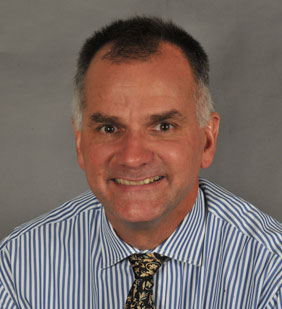The opening question in the second presidential debate in October made me question my professional qualifications. Jeremy Epstein stated, “As a 20-year-old college student, all I hear from professors, neighbors and others is that when I graduate, I will have little chance to get employment.”
I don’t know about Jeremy’s neighbors, but why would professors at Adelphi University paint such a dismal picture for their students regarding future employment? This is not the message I send to my students at UMass Boston.
Neither President Obama nor Governor Romney answered Jeremy’s question, nor did they point out that Jeremy has been receiving bad advice. Neither of them referenced the most recent Economic Policy Institute’s estimate that in 2011, the unemployment rate of recent graduates aged 21 to 24 years old was 9.4 percent, a full percentage point lower than in 2010. The more troubling statistic that Jeremy’s professors needed to highlight is the underemployment rate of 19.1 percent. This suggests that he may have to take a job for which he is overqualified and thus harm his future labor market success.
As a college graduate in that age group in 1982, with a national unemployment rate of 9.6 percent that climbed to 10.8 percent by December of that year, I can relate to the fears that prompted Jeremy’s question. Even during the malaise of the Carter years, my liberal arts professors counteracted the normative discourse and promoted the efficacy of a Bachelor of Arts degree in English literature and predicted my future success in the labor market upon graduation.
My fear should not have been graduating into an economy with high unemployment, but that I would take the first job I was offered even if it failed to require my newly acquired critical thinking skills. I probably would not have heeded advice to believe in the credentials my liberal arts degree carried, but I wish I would have received it.
By taking jobs that we were overqualified for, many in my cohort placed ourselves on a lower earnings trajectory than the graduates before and after us. It was not until the mid-2000s that my cohort’s wages got more in tune with those of the sets whom graduated after the 1982 recession.
Truth be told, the recession (between ‘07 and ‘09) made me question the value of higher education and my role in the classroom. Instead of despairing that graduates would not find employment, I found comfort in the knowledge that our liberal arts tradition prepares students by embedding in them critical thinking skills.
As foreign exchange students in my classes often remind me, in the United States, we encourage students to talk and debate the merits of material covered in a course’s syllabus. In debating theoretical perspectives, students develop problem solving skills that firms find attractive in the labor market.
So, yes, contrary to what one might think, that English literature degree of mine made me an attractive candidate for future employment.
Our liberal arts graduates may not have developed vocational skills like students in our more technical fields, but liberal arts students have the ability to be critically self-reflective of their motivations and more creative in their problem solving abilities. With guidance from their professors and the assistance of networks of UMass Boston alumni, they can apply these critical thinking skills not only to become successful in our regional labor market, but also to be good citizens in the broadest sense of the term and be leaders in the communities in which they live.





















































